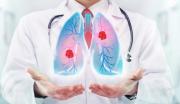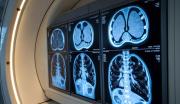
On October 1, 2024, the American Cancer Society released a report revealing an alarming trend: while breast cancer death rates have continued to fall, the number of new breast cancer diagnoses is steadily rising, particularly among younger women and Asian Americans. The report underscores the need for heightened awareness, early detection, and lifestyle changes to counter this concerning development.
At Shore Cancer Center in Somers Point, NJ, a member of the Penn Cancer Network, healthcare professionals are paying close attention to the findings. “One of the reasons we’re seeing more breast cancer cases is that awareness around the importance of mammograms has increased,” said Dr. Vijay Sandilya, Medical Director of Shore Cancer Center. “Women are getting screened more frequently and earlier in life, which allows us to catch cancer in its earliest stages. We’re also discovering pre-cancerous lesions that may not have been detected before, and we’re able to treat them before they develop into more serious conditions.”
Dr. Sandilya’s emphasis on the role of early detection is echoed throughout the report. With mammograms becoming a routine part of healthcare for women, more cases are being caught early, contributing to higher diagnosis rates. This early detection often leads to better treatment outcomes, as catching cancer at its earliest stage significantly improves the chances of survival.
Dr. Vijaykumar Gandhi, a board-certified medical oncologist, hematologist, and internist at Shore Cancer Center, also highlighted the importance of these screenings. “These pre-cancerous lesions that we are now able to detect early may or may not be clinically significant, but they give us a chance to intervene early. In the past, these lesions may have gone unnoticed, only becoming a concern when they had progressed further.”
The report from the American Cancer Society also suggests that rising breast cancer rates may be linked to certain lifestyle factors, especially in younger women and Asian Americans. “There has not been any changes in genetic factors, but there has been a shift in lifestyle habits over the years,” Dr. Gandhi explained. “Increased alcohol use, smoking, increased age at first full-term pregnancy, poor dietary habits, obesity and sedentary lifestyle - leading to higher insulin resistance - are all factors that can increase the risk of breast cancer. These changes in daily habits, particularly in younger women and within specific communities like Asian Americans, are likely contributing to the rise in breast cancer cases.”
The rising rates of breast cancer among Asian Americans have drawn attention because this demographic traditionally had lower rates of the disease compared to other populations. Experts believe that changes in reproductive behavior, dietary habits, and migration patterns may be playing a role. “Asian Americans are adopting more Westernized diets and lifestyles, which could explain why we’re seeing an increase in breast cancer rates in this population,” Dr. Sandilya added. “This is an important area for further research, but the most immediate step we can take is ensuring that every woman, regardless of her background, is aware of the importance of regular screenings.”
Both doctors agree that while awareness and screenings are vital, addressing the root causes of the rise in breast cancer requires a focus on lifestyle changes. “We must look at the bigger picture,” Dr. Gandhi said. “Encouraging healthier living—whether that means promoting a better diet, increasing physical activity, or reducing obesity, quitting smoking, and reducing alcohol consumption—needs to be part of the conversation.”
As breast cancer rates continue to rise among these populations, Dr. Sandilya and Dr. Gandhi urge women to take proactive steps for their health. “The earlier we catch breast cancer, the better the chances of successful treatment,” Dr. Sandilya said. “Mammograms save lives, but we also need to educate women on how their daily habits can impact their long-term health.”
The team at Shore Cancer Center is committed to providing top-quality care for breast cancer patients, offering cutting-edge treatments and access to the latest clinical trials through their membership in the Penn Cancer Network. “We’re here to help every step of the way, from early detection through treatment,” Dr. Gandhi noted. “But the key is for women to be vigilant about their health.”
The American Cancer Society’s report serves as a reminder that while breast cancer treatment continues to improve, the fight against the disease is far from over. Awareness, early detection, and lifestyle changes are essential tools in curbing the rise in breast cancer, especially in younger women and Asian Americans.










